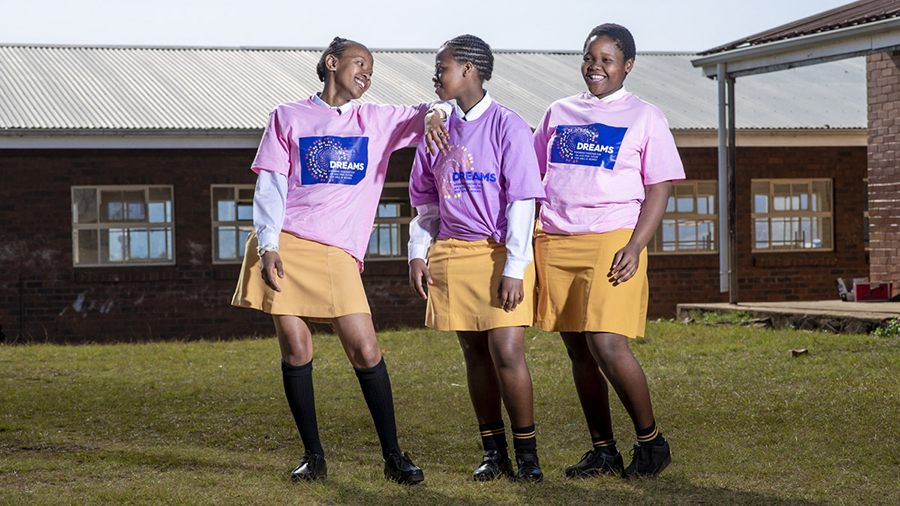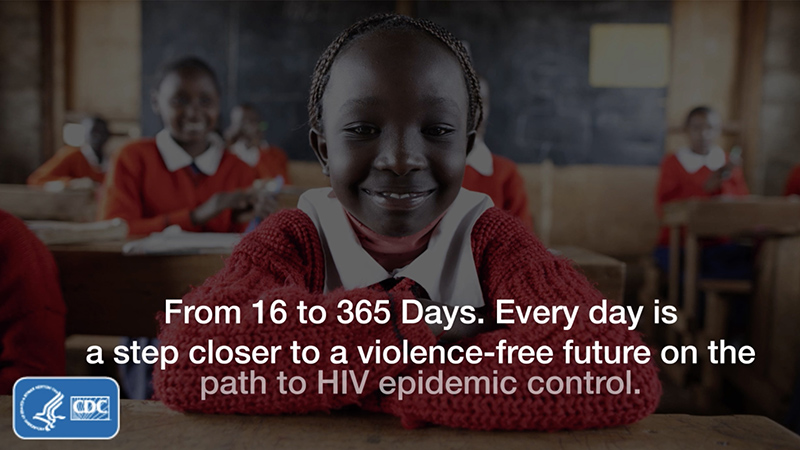Ending Gender-based Violence Globally

DREAMS program participants discuss opportunities for the future. Photo by Thom Pierce 2018.
The Centers for Disease Control and Prevention (CDC) affirms its commitment to preventing and responding to violence during the third year of the 16 Days of Activism Against Gender-Based Violence campaign. The campaign, from November 25 to December 10, brings together communities, organizations, and individuals worldwide to raise awareness of gender-based violence and call for its end.
With support from the U.S. President’s Emergency Plan for AIDS Relief (PEPFAR), CDC works with partners in 46 countries to achieve global targets to end the HIV epidemic. While progress is being made, the benefits are uneven, and some people, including adolescent girls and young women, bear a disproportionate burden of HIV. Women with a history of physical and/or sexual abuse are more likely to be living with HIV, especially if that abuse started during childhood. HIV-related stigma, discrimination, and violence are persistent barriers to addressing the HIV epidemic, restricting access to prevention and treatment services for those most at risk.
Violence against youth is also a global public health problem, with one in eight young people reporting having experienced sexual abuse. The results can be devastating – leading to long-term psychological, social, and physical harm. Violence prevention and response for youth is a global priority and complementary to efforts to eliminate all barriers to HIV treatment and prevention and accelerate progress toward ending the HIV epidemic.
This year’s campaign highlights stories of helping youth to prevent violence, with a focus on efforts that include:
- Promoting families that support healthy development
- Providing quality education
- Strengthening youth’s skills and economic empowerment
- Connecting youth to caring adults and activities
- Creating protective communities, and
- Intervening to reduce harm and prevent future risks.
Also, we are sharing an innovative response approach centered on empathy and connection to services to support youth who disclose violence.
Gender-based violence (GBV) is any form of violence against an individual based on biological sex, gender identity or expression, or perceived adherence to socially defined expectations of what it means to be a man or woman, boy or girl. This includes physical, sexual, and psychological abuse; threats; coercion; arbitrary deprivation of liberty; and economic deprivation, whether in public or private life. In addition, GBV is rooted in gender-related power differences.
Starting with the 16 days of activism, we invite you to explore the stories and videos and learn how CDC reduces and responds to gender-based violence in youth. By amplifying voices worldwide, CDC aims to continue to increase awareness of gender-based violence – and ultimately save lives. We encourage you to learn how to help eliminate gender-based violence and all forms of stigma and discrimination in your community and take action for change.



